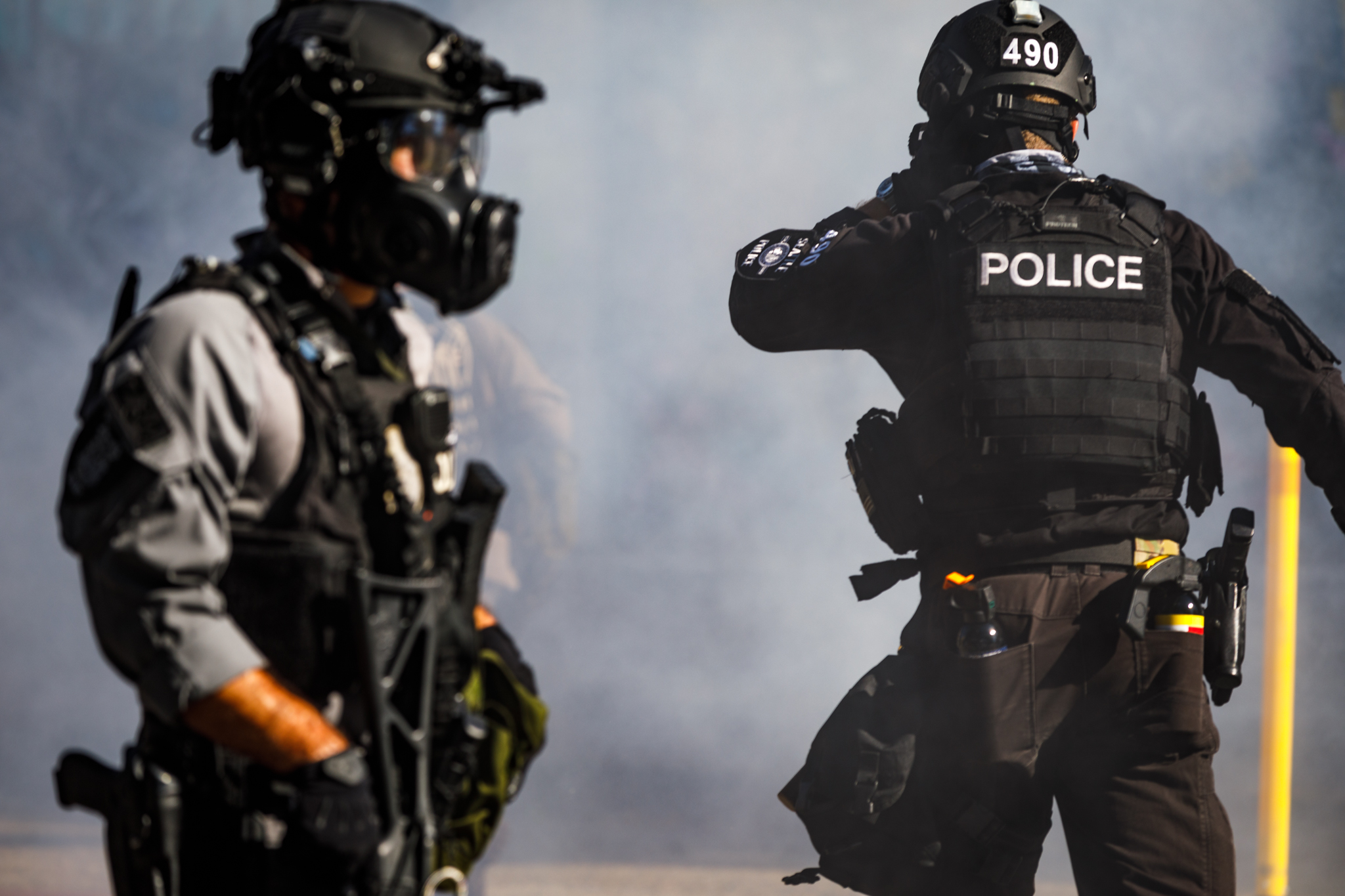On Tuesday, the Washington State Senate approved a bill that would require police officers to intervene against wrongdoing by fellow law enforcement officers.
SB 5066, introduced by Senator Manka Dhingra (D‑Redmond), a Northwest Progressive Foundation boardmember, is the latest in a series of police reform bills that Democrats have introduced to the state legislature in response to demands by Black Lives Matter and other groups to fundamentally change the nature of policing, demands given urgency by the death of George Floyd in Minneapolis and the social justice and antiracism movement that was amplified by his murder.
SB 5066 has three key provisions.
First, the bill creates a legal requirement for police officers when they see a fellow officer engage in excessive force to act directly to stop the perpetrator and deliver first aid to the victim if necessary.
One example of such an action came during the protest movement of last year, when a viral video showed a Seattle Police Department officer forcibly remove his colleague’s knee from the neck of a protester after tapping him to stop.

Second, the law requires officers to report wrongdoing (whether excessive force or other actions that violate professional and ethical standards) to their superiors, while forbidding those superiors from punishing the whistleblower.
Finally, the bill requires law enforcement agencies in the state to implement these policies (known as “duty to intervene” policies) by June of 2022.
If the bill is signed into law, Washington will be one of the first states to codify the “duty to intervene” into state law, but such regulations are already fairly commonplace in the internal policies of police departments across the nation.
Many agencies, such as the Dallas Police Department and the Charlotte-Mecklenburg Police Department, have begun instigating “duty to intervene” rules in response to the death of George Floyd. Rather discouragingly, Minneapolis has had this policy on the books since 2016, but it didn’t help George Floyd.
Senator Dhingra argued in a press release that the law would empower responsible police officers while letting vulnerable communities feel heard.

“I have had the pleasure of working with many law enforcement officers in my previous career as a senior deputy prosecutor, and the vast majority are committed to doing the right thing,” said Senator Dhingra. “They hold themselves up to high ethical standard. This bill is about empowering our good officers to hold their peers to the same high standard. We have been working closely with communities that have been suffering violence at the hands of the police, as well as with law enforcement officers. This bill will help keep communities safe and will provide the tools and support to reinforce a healthy culture in law enforcement.”
During a public hearing of the Senate Law and Justice Committee a variety of law enforcement groups praised the bill, with James Schrimpser (Chief of Police of Algona and Vice President of the Washington Fraternal Order of Police) summarizing many of his colleagues’ attitudes with a telling anecdote: “I walked into the office today and an officer asked me, “Chief, isn’t this already a thing?” I answered, “Yes, this is a thing, we’re just codifying it.””
Representatives of the Washington Association of Sheriffs and Police Chiefs (WASPC) and the Washington Council of Police and Sheriffs (WACOPS) were less enthusiastic. While claiming to approve of the intent of the bill, and praising Sen. Dhingra for bringing it forward, they argued that the definition of terms such as “wrongdoing” and “excessive force” should be narrowed in the bill’s language.
Republican lawmakers seized upon this argument to offer a a slew of amendments to change the language of the bill, almost all of which would have created loopholes which would allow police to avoid full compliance with the spirit of the law. One proposal called for law enforcement officers affiliated with out-of-state agencies to be exempt – calling to mind the Trump regime flying unaccountable federal forces into Portland and Seattle to quell anti-racist protests last summer.
Fortunately, these amendments were all voted down one by one by the Senate’s Democratic majority. SB 5066 was then passed 28–21, with the vote split along party lines. The roll call for the bill was as follows:
Roll Call
SB 5066
Officer duty to intervene
3rd Reading & Final Passage
2/23/2021Yeas: 28; Nays: 21
Voting Yea: Senators Billig, Carlyle, Cleveland, Conway, Darneille, Das, Dhingra, Frockt, Hasegawa, Hobbs, Hunt, Keiser, Kuderer, Liias, Lovelett, Mullet, Nguyen, Nobles, Pedersen, Randall, Robinson, Rolfes, Saldaña, Salomon, Stanford, Van De Wege, Wellman, Wilson (Claire)
Voting Nay: Senators Braun, Brown, Dozier, Ericksen, Fortunato, Gildon, Hawkins, Holy, Honeyford, King, McCune, Muzzall, Padden, Rivers, Schoesler, Sheldon, Short, Wagoner, Warnick, Wilson (Jeff), Wilson (Lynda)
Democrats provided all of the votes in support of the bill and Republicans provided all of the votes in opposition.
The bill has been sent to the state House of Representatives, where it has until April 11th to be acted upon before the requisite cut-off.
The 2021 legislative session will run until April 25th, 2021.

